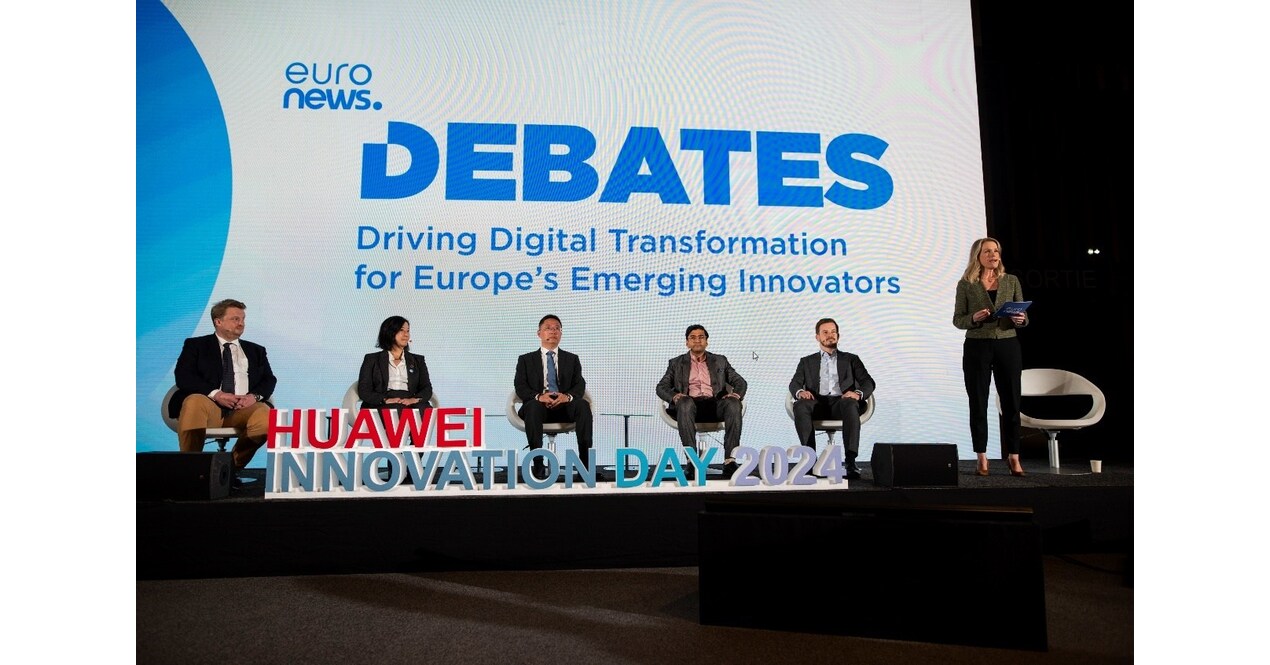Lack of reliable data hampers water-resilient Europe, says water tech industry

A group of water tech companies, in a joint statement, says a lack of reliable data and lack of measurement at the EU level is hampering Europe from becoming fully water resilient.
Signed by companies including Siemens, Bentley, Cisco, and Schneider Electric, the joint statement calls on EU and national policymakers to urgently develop an EU-wide action plan on digitalisation in the water sector and to accelerate data-driven innovation across the entire water value chain.
“Data is part of how we can understand the green and blue landscape. You need data to improve the energy market, but when we talk about the water market, that is really a premature concept,” former MEP Pernille Weiss (EPP) told Euractiv.
The former chairperson of the MEP Water Group explained that high-quality data is required to help the EU design its future water market and to understand which concepts and technologies are working and delivering a return on their investment.
“If we can better understand that, then we also can improve the possibility for European businesses that make horizontal technologies, either services or products, that can go on the export market,” Weiss said. “Because the problems we are facing in the EU are also the same problems found elsewhere around the globe.”
Good on policy, weaker on results
Weiss, who is now adjusting to life after Brussels partly by advising entities such as the Knowledge and Innovation Community (KIC) Water, Marine, and Maritime, said that while Europe has been at the forefront of creating environmental regulations, it has not focused enough on how to become more water efficient and water resilient.
The EU had better do so quickly because different regions are facing droughts, floods, or both, Weiss said.
While water quality has already been well addressed by European policy, the topic of water quantity is becoming an increasingly important and challenging one, Water Europe Executive Director Durk Krol told Euractiv.
The multi-stakeholder association, which was originally established by the European Commission and today represents the entire water value chain, sees that while water was traditionally a topic more relevant to southern European countries, member states in the north are starting to get affected by water issues themselves. Especially considering Europe’s strategic policies.
“We see that the EU wants to make the transition to a hydrogen economy. But for one kilogram of hydrogen, you need nine kilograms of ultra-pure water,” Krol explained.
On Europe’s transition to a digital economy, Krol said that for a one-megawatt data centre, one would need around 25 million litres of water, enough water to fill about 10 Olympic-sized swimming pools, simply for the centre’s cooling system.
A recent socio-economic report commissioned by Water Europe also highlighted that the EU is producing 3 million wafers per month in the semiconductor industry.
This activity consumes 45 million cubic metres of fresh water a month. The report stressed that water quality issues can disrupt the supply chain of chips, leading to shortages and price increases.
Krol said that at a policy level, water is hardly ever discussed as a standalone topic and is usually grouped with environmental and agricultural policies. That makes water politically weak, he believes, which led Water Europe to push the Commission to develop a water strategy and put it in an appropriate organisational hierarchy.
According to Krol, more must be done to strengthen investment in the water sector, which he described as being highly fragmented, which then represents a problem for investors since a return on their investment may take quite a long time to materialise.
Krol highlighted that a water crisis could impact the global economy with a magnitude equal to 10% of global GDP.
However, if Europe were to invest 0.5% of its GDP today, it could avoid these repercussions in the future, Krol said, urging politicians to work with the right foresight.
However, while Europe invests a lot in research and innovation, the transition from using these results to deploying them in the market is still lacking, Water Europe Director of Operations Andrea Rubini told Euractiv.
On the issue of data raised by water tech companies, Rubini said there is a lack of consistency in gathering data from different EU member states.
‘Digitalisation too slow’
“Deployment of monitoring/modelling technologies is still lagging in many member states, and the digitalisation of the sector is much too slow,” the water tech companies said in their joint statement.
They urged the EU to help fund the digitalisation of the water sector, accelerate the implementation of existing EU water legislation at the national level, and help tackle the skills shortage in this sector. The companies said data management and analytics are critical to help inform decisions on things such as pollution, leakage prevention, and water rights allocation.
If nothing is done to ease Europe’s water challenges within the next 15 years, it may be one of the reasons that cause democracy to decline, former MEP Weiss said.
“Because we will see that water scarcity will make us fight one another. Who gets to pay for the clean water? And who gets the water before the others? Is it the farmers over the energy-intensive industries, or is it the citizens before? So democracy is also part of the game when it comes to water,” Weiss said.
[ Edited by Brian Maguire | Euractiv’s Advocacy Lab ]
Related
EU regulators scrap probe into Apple’s e-book rules after complaint…
EU antitrust regulators on Friday (22 November) closed a four-year-long investigation into Apple's rules for competing e-book and audiobook
Belgian unicorn Odoo raises €500M, Northvolt files for Chapter 11, and…
This week we tracked more than 95 tech funding deals worth over €2.5 billion, and over 15 exits, M&A transactions, rumours,
At Its European Innovation Day 2024, Huawei Advocates Collaboration to…
PARIS, Nov. 22, 2024 /PRNewswire/ -- Huawei hosted the 2024 "Europe Innovation Day" in Paris, an event where European tech leaders, busi
European AI companies grapple with rigid rules, funds
The twin challenges of tightening regulations and a lack of growth-stage investments are casting a long shadow over European artificial intelligence and deep te










